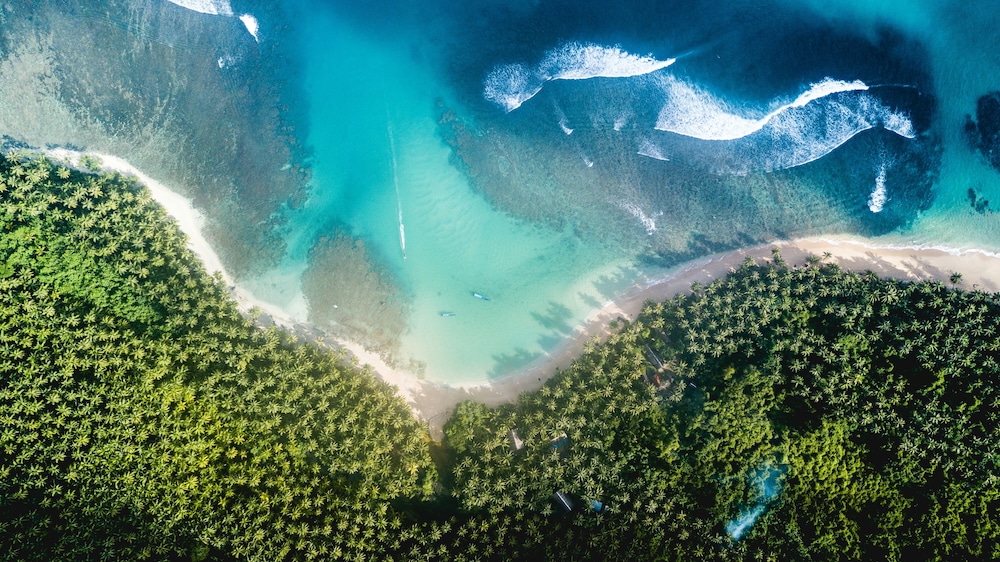This post was originally published on Eco Watch
“If we save the sea, we save our world” — Sir David Attenborough, Ocean with David Attenborough
Almost every country in the world has signed on to safeguard a minimum of 30 percent of the world’s ocean by 2030, yet just eight percent is currently being protected. The rate of new marine protected area (MPA) designations is not fast enough to come close to touching this milestone.
To address this urgent challenge, the Revive Our Ocean initiative — launched Thursday and backed by British naturalist David Attenborough — was designed to assist communities in efforts to pick up the pace of protecting our planet’s oceans, a press release from Revive Our Ocean said.
The program is the first of its kind, pioneering a model that supports organizations creating effective community-led marine reserves.
“Despite overexploitation, the ocean has an incredible ability to recover – if we take action now,” said Kristin Rechberger, Revive Our Ocean’s founder and CEO of Dynamic Planet, in the press release. “To meet the 30×30 goal, we need to quadruple ocean protection in the next five years. Now we need all coastal communities in the world to create their own marine protected areas, because they work for everyone and can also be a good business.”
Aerial view of Australia’s coastline. James Donaldson / Revive Our Ocean
Coordinated by Dynamic Planet and co-founded by National Geographic Pristine Seas, Revive Our Ocean aims to accelerate coastal protection globally and inspire worldwide change by equipping and enabling local communities to build as many new MPAs as they can.
The initiative will start out by focusing on seven countries — Indonesia, the Philippines, Mexico, Turkey, Greece, Portugal and the United Kingdom — offering a solution to climate change and overfishing.
Revive Our Ocean equips local communities and leaders with a set of practical tools, including an “MPA How-To” guide, as well as access to a network of top marine protection experts from around the world.
“Unfortunately, most people are unaware of the multiple benefits of effective MPAs; government red tape makes them difficult to establish; and they often aren’t designed with proper business plans,” Rechberger said.
The initiative strives to dispel the image of MPAs as weighing down national and local economies. A recent study that looked at MPAs in 34 countries found that the protected areas provide a host of economic benefits.
In the over 50 MPAs examined by the researchers, protected areas were found to boost tourism and fishing, with profits reaching billions of dollars in some regions.

“One of the greatest myths about Marine Protected Areas is that they solely benefit ocean biodiversity at the expense of jobs and income. REVIVE OUR OCEAN will reveal how MPAs can power regenerative businesses – businesses that restore nature – proving that conservation and economic prosperity can go hand in hand. Local communities engaged in fishing, tourism and other activities have known this for generations. Reviving marine life revives local economies and communities. It’s time for the world to recognize that MPAs are the building blocks of the blue economy,” Rechberger said.
Revive Our Ocean supports an end to the fisheries practice of bottom trawling in MPAs.
“[M]any existing MPAs remain ineffective, with destructive industrial fishing practices – such as bottom trawling – still allowed within their boundaries. REVIVE OUR OCEAN supports the movement to end bottom trawling in MPAs by amplifying the work of leading organizations driving policy change to end paper parks for true protection,” the press release said.
Revive Our Ocean is a co-producer of the upcoming feature film Ocean with David Attenborough, which underscores the urgent need for large-scale action to safeguard the future of our ocean.
“Attenborough’s compelling storytelling exposes the ocean’s biggest challenges but, more importantly, delivers a message of hope if action is taken now,” the press release said.
The film will premiere in London on May 6, just before Attenborough’s 99th birthday.

“Marine protected areas are the best way to restore the health and wealth of the ocean and the coastal communities that depend on it. We need MPAs to stop being the best kept secret of the ocean,” said Dr. Enric Sala, founder of Pristine Seas, who served as one of the film’s scientific advisors.
Revive Our Ocean has also produced a series of short films that illustrate MPAs’ transformative impact through testimonies and real-world success stories. The films highlight four groups that are crucial for advancing ocean protection: tourism leaders, fishers, mayors and heads of state.
“I was one of those children who were literally born on the sea. We were raised on a boat and I learned how to fish from my parents. I was helping them as we ran a small scale family business. I call the sea home. And to protect my home, I had to do something. I became a marine ranger so that I could fish again in the future. Because I love being a fisherwoman. That’s what I want for the future. To be able to make a living just from fishing and nothing else. I am extremely hopeful,” said Ayşenur Ölmez, an Akbük Gökova Bay fisher and the first woman marine ranger at Turkey’s Gökova Bay Marine Protected Area, which was created by the Marine Conservation Society and is a member of the Revive Our Ocean Collective.
The post Revive Our Ocean Initiative Aims to Increase Marine Protected Areas to Cover 30% of World’s Oceans by 2030 appeared first on EcoWatch.





0 Comments